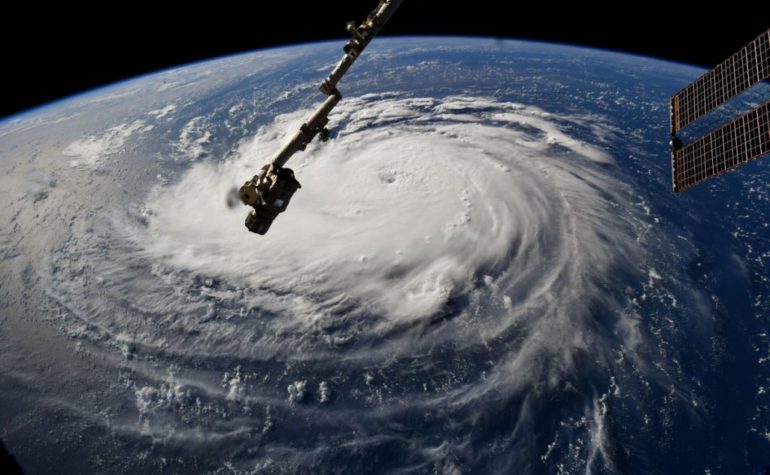WASHINGTON – After facing criticism for its response during the 2017 hurricane season, the Federal Emergency Management Agency (FEMA) said Tuesday it is partnering with the private sector to create a more efficient recovery process in anticipation of Hurricane Florence.
“At this time, FEMA feels from our standpoint that we are in a good position to support our state and locals,” Jeffrey Byard, FEMA’s associate administrator for the agency’s Office of Response and Recovery told reporters.
At the White House, President Donald Trump was briefed by FEMA Administrator Brock Long and Homeland Security Secretary Kirstjen Nielsen as forecasters warned of potentially catastrophic damage when the hurricane strikes the coast somewhere in the Carolinas.
“The safety of American people is my absolute highest priority,” Trump said. “We are sparing no expense. We are totally prepared. We’re ready. We’re as ready as anybody has ever been.”
A Government Accountability Office report released Sept. 4 that examined FEMA’s response to the 2017 hurricanes said that “staff shortages, and lack of trained personnel with program expertise led to complications in its response efforts.”
When Hurricane Harvey hit in August 2017, FEMA had personnel in 692 federally-declared disasters. The lack of available, qualified responders left FEMA 30 percent understaffed in Harvey response efforts, the GAO said.
In October 2017, “54 percent of staff were serving in a capacity in which they did not hold the title of ‘Qualified’ — according to FEMA’s qualification system standards,” the report said.
Trump insisted that the federal response to the devastation by Hurricane Maria in Puerto Rico last fall “was incredibly successful,” despite widespread criticism that delays in aid contributed to the deaths of 2,975 people. Other estimates of fatalities on the island territory were as high as 5,000.
The president called the federal efforts in Puerto Rico “an incredible, unsung success.”
During FEMA’s Tuesday afternoon press briefing, officials stressed that they had learned many lessons from last hurricane season. For the response and recovery of Hurricane Florence, FEMA will partner with private entities, including those that provide fuel, transportation, groceries and electricity.
“We have also broadened our partners with private sectors and other critical agencies within Homeland Security, to provide us with additional capabilities as we look into the response (to) Hurricane Florence,” Byard said.
When Florence, a Category 4 hurricane as of late Tuesday afternoon, lands on the East Coast, FEMA officials said, “the storm will definitely knock out power.” While crews are already moving in to repair the expected damage, Byard said that it may take “a large amount of time” to restore all power. People should use emergency power generators as a source of energy until it is safe for authorized personnel to enter all affected areas, FEMA said.
The current forecast predicts that Maryland could face major flooding after the hurricane makes landfall. The primary concern, according to Ed McDonough, the Maryland Emergency Management Agency’s public information officer, is the amount of rain that a storm this big produces, especially if the storm stalls over land.
Further, over the past four months, the state experienced excessively wet weather, leaving the ground already saturated. This makes trees more susceptible to falling.
“Even a little bit of modest wind can cause a lot of trees to come down and break down power lines and create power outages,” McDonough said. “So we’re encouraging people to kind of prepare for that.”
Video by Lauren Koenig & Danielle Stein
FEMA spokesperson Will Powell said that FEMA has been in close coordination with Maryland officials in preparation for Florence.
“We are deploying a federal coordinating officer to Maryland to coordinate directly with the state, as well as an incident management assistance team to support potential state requests for assistance,” Powell said. “We continue to actively plan, stage commodities, and prepare for Hurricane Florence’s potential impacts across the region.”
Despite state preparations, the course of the hurricane is still unpredictable, McDonough said. Local and federal officials are instructing people to pay attention to their local weather forecasts and react accordingly.

